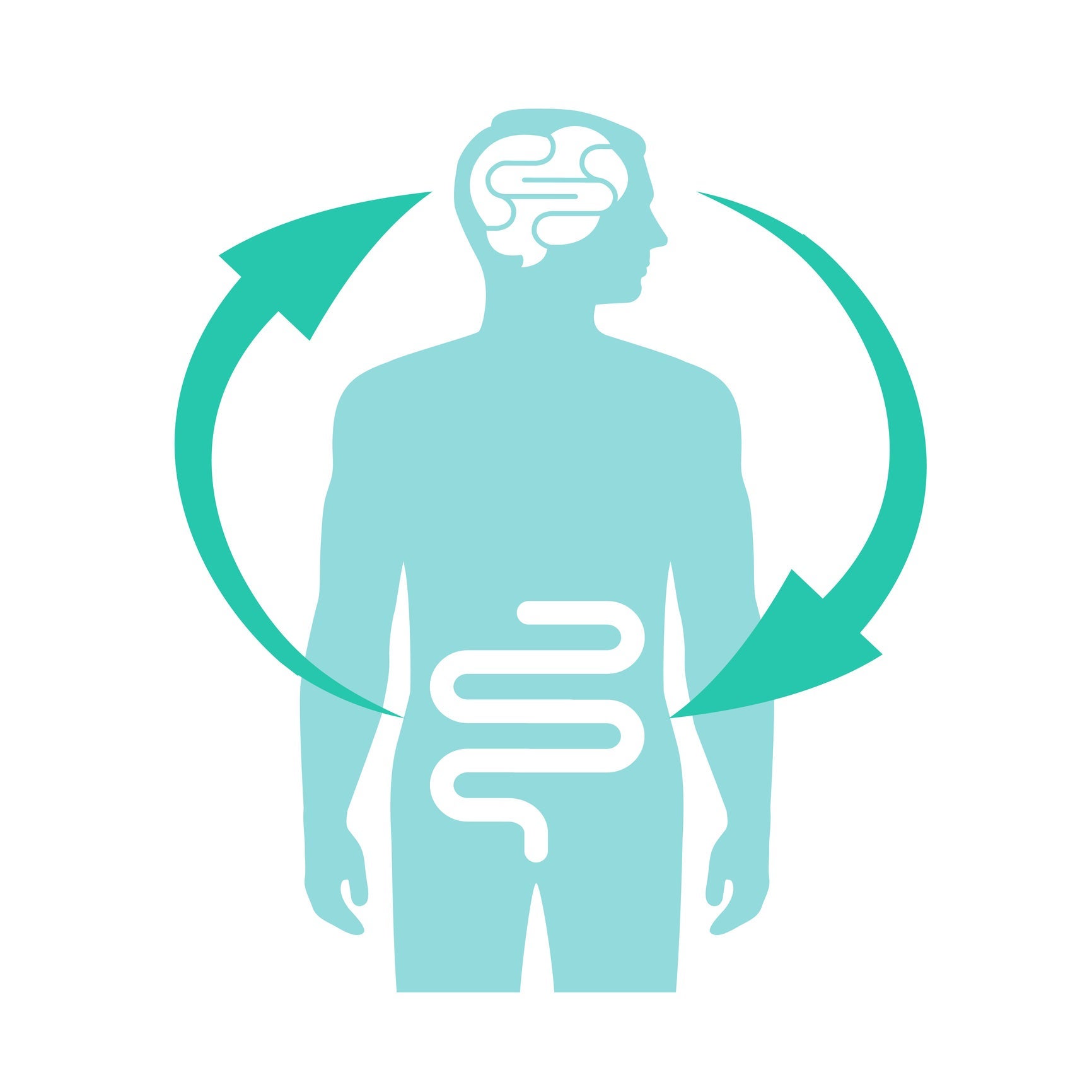Researchers discover associations among PTSD, diet, and the gut microbiome

Study suggests that adhering to a Mediterranean diet may alleviate or prevent posttraumatic stress disorder (PTSD) symptoms
For immediate release: October 19, 2023
Boston, MA—The human gut microbiome has a significant impact on our health. Research has shown that it can influence the development and response of emotions, but the relationship between post-traumatic stress disorder (PTSD) and the gut microbiome has been unexplored. PTSD is a fear-based mental health disorder that develops in some individuals who experience a disturbing and horrifying situation involving severe injury, actual or threat of death, or violence. A new study by investigators from Brigham and Women’s Hospital and Harvard T.H. Chan School of Public Health systematically investigated the relationship between PTSD, diet, and the gut microbiome. Their study found that participants who adhered to a Mediterranean diet experienced decreased PTSD symptoms.
The study was published on October 19, 2023, in Nature Mental Health.
“There is a very intriguing relationship between the human gut microbiome and the brain,” said co-corresponding author Yang-Yu Liu, of the Channing Division of Network Medicine within the Department of Medicine at Brigham and Women’s Hospital. “Through our study, we examined how factors, like diet, are associated with PTSD symptoms. While further research is needed, we are closer to being able to provide dietary recommendations for PTSD prevention or amelioration.”
The burden of PTSD often extends beyond the individual; family members, the health care industry, and society are also affected by the mental health disorder. In addition, individuals with PTSD have an increased risk of developing chronic diseases such as coronary heart disease, stroke, diabetes, autoimmune diseases, and premature death. Understanding the role of diet and the microbiome could improve recommendations and outcomes for patients with PTSD.
“Examining the gut-brain axis can provide insights on the interdependence of mental and physical health,” said co-corresponding author Karestan Koenen, professor of psychiatric epidemiology at the Harvard Chan School. “Our findings suggest the PTSD and human gut microbiome relationship is a promising area of research that may lead to recommendations for alleviating the down-stream negative health consequences of PTSD.”
The team collected data from 191 participants in sub-studies of the Nurses’ Health Study-II, which included the Mind-Body Study and the PTSD Substudy. Participants were assigned to three groups: probable PTSD, exposed to trauma but no PTSD, and no trauma exposure. All the participants submitted two sets of four stool samples, once at the beginning of the study and again six months later. The samples were collected to provide microbial DNA information and to confirm that the participant’s gut microbiome was stable over six months.
The team evaluated the associations between overall microbiome structure and host factors, including PTSD symptoms, age, body mass index (BMI) and dietary information. From this evaluation, the researchers found several host factors (BMI, depression, and antidepressants) associated with the microbiome structure.
Next, the researchers assessed the relationship between the available dietary information and PTSD symptoms. The team found that participants who adhered to a Mediterranean diet experienced fewer PTSD symptoms. In particular, they found that the consumption of red and processed meats was positively associated with PTSD symptoms, while the consumption of plant-based foods was negatively associated with PTSD symptoms.
Lastly, the team employed the generalized microbe–phenotype triangulation method to examine the link between PTSD symptoms and the gut microbiome signatures, aiming to identify putative PTSD protective species. They identified Eubacterium eligens as the top PTSD putative protective species. To test the consistency of this signature over time, the team found that the inverse association of E. eligens abundance with PTSD symptoms was highly consistent across all four time points. They further demonstrated that E. eligens was positively associated with the enriched components of the Mediterranean diet (such as vegetables, fruits, and fish) and that E. eligens was negatively associated with red/processed meat, which people following a Mediterranean diet limit or avoid.
The team notes limitations to their study, including using a short screening scale for PTSD (instead of a formal clinical diagnosis of PTSD). However, the results offer insights for future studies examining other mental health disorders and dietary interventions to improve recommendations to alleviate or prevent symptoms.
“It’s exciting that our results imply that the Mediterranean diet may provide potential relief to individuals experiencing PTSD symptoms,” said Liu. “We are eager to learn more about the relationship between PTSD, diet, and the gut microbiome. In a future study, we will attempt to validate the efficacy of probiotics as a method to prevent PTSD.”
Other Harvard Chan co-authors include Andrea Roberts, Francine Grodstein, and Laura Kubzansky.
Funding for the study came from the National Institutes of Health (R01AI141529, R01HD093761, RF1AG067744, UH3OD023268, U19AI095219, and U01HL089856, R01MH101269); the Harvard T.H. Chan School of Public Health Dean’s Fund for Scientific Advancement Incubation Award; the Biology of Trauma Initiative of the Broad Institute; and the Traumatic Brain Injury and Psychological Health Research Program (Focused Program Award) under Award No. (w81XWH-22-S-TBIPH2) endorsed by the Office of the Assistant Secretary of Defense for Health Affairs in the Department of Defense.
“Association of probable post-traumatic stress disorder with dietary pattern and gut microbiome in a cohort of women,” Shalin Ke, Xu-Wen Wang, Andrew Ratanatharathorn, Tianyi Huang, Andrea L. Roberts, Francine Grodstein, Laura D. Kubzansky, Karestan C. Koenen, Yang-Yu Liu, Nature Mental Health, October 19, 2023, doi: 10.1038/s44220-023-00145-6
Visit the Harvard Chan School website for the latest news, press releases, and multimedia offerings.
Image: iStock/kowalska-art
For more information:
Maya Brownstein
mbrownstein@hsph.harvard.edu
###
Harvard T.H. Chan School of Public Health brings together dedicated experts from many disciplines to educate new generations of global health leaders and produce powerful ideas that improve the lives and health of people everywhere. As a community of leading scientists, educators, and students, we work together to take innovative ideas from the laboratory to people’s lives—not only making scientific breakthroughs, but also working to change individual behaviors, public policies, and health care practices. Each year, more than 400 faculty members at Harvard Chan School teach 1,000-plus full-time students from around the world and train thousands more through online and executive education courses. Founded in 1913 as the Harvard-MIT School of Health Officers, the School is recognized as America’s oldest professional training program in public health.


